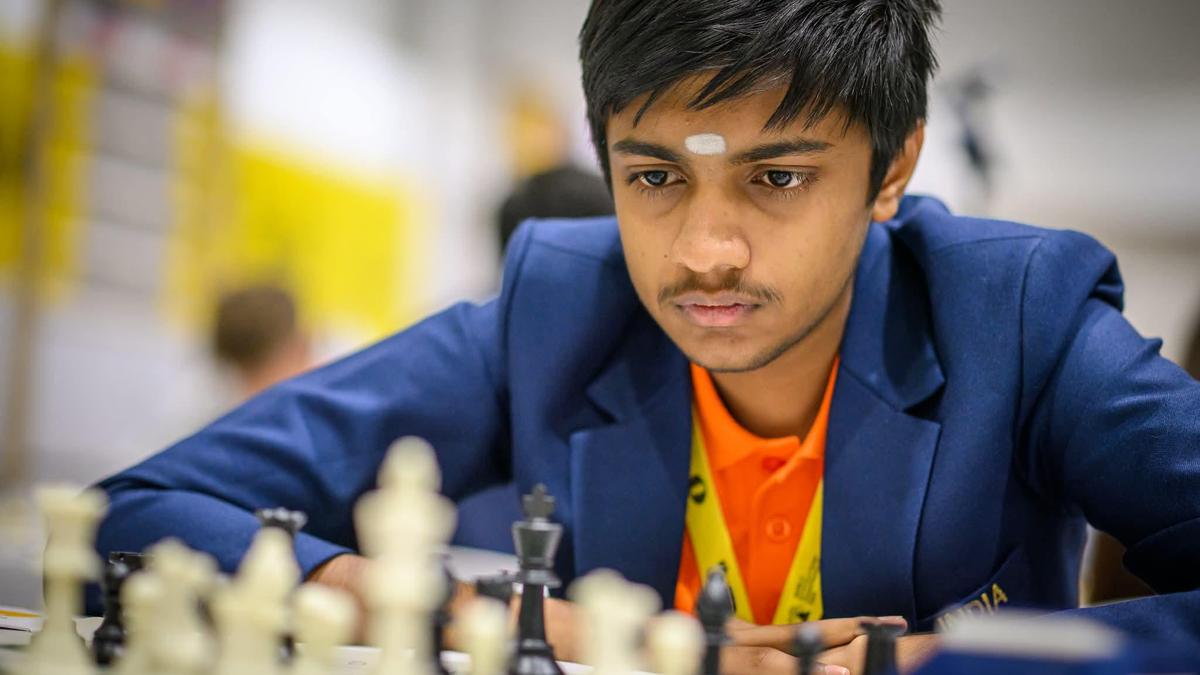ARTICLE AD BOX
Sitting inside his modest house in Haryana’s Petwar village, Rishi Kant, 70, recounted a declaration by his youngest sibling decades ago.
“Bathed in sweat, as we threshed the wheat harvested from our family’s six-acre field, Surya (his youngest brother) declared, ‘I will change my life’. He had just completed his matriculation,” recalls Rishi, flanked by locals in his house, located 136 km from New Delhi.
And change his life ‘Surya’ did.
 Justice Surya Kant’s brother Rishi Kant, a retired government school teacher, and sister-in-law Rajbala Devi, a homemaker, at their house in Petwar village of Haryana’s Hisar district. (Express photo)
Justice Surya Kant’s brother Rishi Kant, a retired government school teacher, and sister-in-law Rajbala Devi, a homemaker, at their house in Petwar village of Haryana’s Hisar district. (Express photo)
On Thursday, a notification regarding the appointment of Justice Surya Kant as the 53rd Chief Justice of India (CJI) was issued by the Law Ministry’s Department of Justice. Justice Kant, who will assume charge on November 24, succeeds Justice B R Gavai, who will demit office on November 23. Justice Kant will remain in office till February 9, 2027.
From a cousin to former classmates — all of whom still fondly call Justice Kant ‘Surya’ — exchanged congratulatory messages and memories inside an unfurnished room in Rishi’s house.
Cousin Ramdiya, 40, a farmer who joined the group after parking his bullock cart outside Rishi’s house, says, “I may be a small farmer, but that has never affected Surya’s affection for me.”
‘He was always intelligent’
Two of Justice Kant’s classmates — Satbir Sharma, a former serviceman who was with him from Classes 1 to 10, and Phool Kumar, a farmer who was with him in Classes 9 and 10 — said he was “quite intelligent” in school.
“Our school fee was just 10 paise back then. Since the school did not have benches, we would sit on empty sacks on the floor,” recalls Satbir.
Story continues below this ad
Phool adds, “I had failed Class 9 twice when Surya joined the class. Even after all his achievements today, he still remembers our names.”
Justice Kant, the youngest among five siblings — one sister and four brothers — was born to Shashi Devi, a homemaker, and Madangopal Shastri, a government school teacher, in Haryana’s Hisar, nearly 50 km from his village, on February 10, 1962.
 The government school in Petwar village of Haryana’s Hisar district, where Justice Surya Kant studied (Express photo)
The government school in Petwar village of Haryana’s Hisar district, where Justice Surya Kant studied (Express photo)
His oldest sibling, sister Kamla Devi, 74, studied till Class before getting married. Among his brothers, Rishi, the oldest, is a retired government school teacher; Shiv Kant, 68, a retired tuberculosis and chest specialist who runs a private hospital in Haryana’s Bhiwani; and Dev Kant, 66, a retired group instructor from an Industrial Training Institute (ITI) in Haryana.
Having completed his graduation from Hisar’s Government Post Graduate College in 1981 and pursued his law degree from Rohtak’s Maharshi Dayanand University in 1984, Justice Kant became the first law graduate in his family.
Story continues below this ad
Instead of pursuing a Master’s degree in law, like his father wanted him to, he started practicing in a Hisar court. In 1985, he moved to Chandigarh to practice in the Punjab and Haryana High Court, where he specialised in constitutional, service and civil matters.
In the 1980s, Justice Kant got married to Savita Sharma, a college lecturer who later retired as a principal. “It was an arranged marriage. Surya had just one condition — that he would not accept even a spoon as dowry,” says Rishi, adding that the couple have two daughters who are both pursuing their Master’s degree in law.
At the age of 38 years, Justice Kant earned the distinction of being appointed the youngest Advocate General of Haryana on July 7, 2000. He was designated as senior advocate in March 2001. He was elevated as a permanent judge of the Punjab and Haryana High Court on January 9, 2004.
In 2011, he got his Master’s degree in law from the Directorate of Distance Education, Kurukshetra University. On October 5, 2018, he assumed charge as the Chief Justice of the Himachal Pradesh High Court. On May 24, 2019, he was elevated to the Supreme Court as a judge.
Story continues below this ad
‘He was always hard-working’
Calling Justice Kant “hard-working”, Rishi recalled his sibling’s study routine from decades ago: “During winter, he would put parali (stubble) under his floor gudri (blanket) to keep warm as he studied with his classmates into the night at our old family house (in the village). He was always hardworking. During his days as a lawyer in Chandigarh in 1990, he would stay up till 2 am to prepare for his court cases.”
On Justice Kant’s shift to Chandigarh in 1985, P K Sandhir, a family friend and a Hisar-based lawyer, said his advocate father helped facilitate it. “After Surya delivered remarkable arguments in a Hisar court, senior lawyers said, ‘Ye ladka yahan nahi hona chahiye (He shouldn’t limit his potential to Hisar).’ When Surya said he did not know anyone out there, my father offered to take him to Chandigarh. In Chandigarh, Surya started practising with advocate Arun Jain,” says Sandhir.
He adds, “Educated in a village government school and with no legal legacy, Surya rose thanks to his tireless efforts and unwavering commitment to justice. He represents the power of the Constitution.”
For the Petwar village sarpanch, the news of Justice Kant’s elevation has brought hope.
Story continues below this ad
Sharing the community’s joy over his next stint, sarpanch Urmila says, “We have all heard the news, but in terms of development, there hasn’t been much movement in the village. I hope the village phirni (a ring road on the outskirts) is constructed soon. The sewage treatment plant, pending for two years now, should be completed. Then there are the defunct boosting stations at the water works that need to be replaced.”
Highlighting the poor condition of the government school where Justice Kant studied, she adds, “Of 10 classrooms, only four are usable. For nearly three years now, there have been no science or maths teachers at the school. This, when nearly 90% of the 150 students enrolled there primarily belong to the Scheduled Castes and backward communities. While they continue to remain at the school, others have switched to private institutions despite the high fees.”
As far as Jassi Petwar, the local MLA and a village resident, is concerned, Justice Kant’s elevation as CJI will serve as an “inspiration” to all. “His elevation will inspire countless children of farmers and the poor to believe that they too can excel in life.”









 English (US) ·
English (US) ·